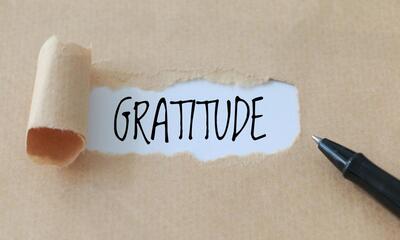Stuck at Home: How Simply Reframing Your Circumstances Can Actually Make You Feel Happier

Being stuck at home has been a unique and individual experience for everyone. Some may be coping well while others are unfortunately not. In this blog, Dr. Chris Grace shares how simply reframing your circumstances can actually make you happier.
As a social psychologist it is interesting to observe how people are navigating the 2020-2021 pandemic, and they seem to fall into two categories. Some are coping well, and even enjoying the new pace and rhythms. They are taking advantage of the opportunity to work from home, or to be around loved ones. Some very creative types are exploring new hobbies or talents, and others are finally finishing some long-neglected tasks. And many essential workers are going about their (somewhat) normal days, with little change in their day-to-day worlds.
Unfortunately, others are not coping as well. Many feel bored, with nowhere to go. They may feel trapped and confined, missing connection through relationships and life in general. Many frontline workers in the medical field are overworked, overstressed and fearful. Others are out of work with financial worries, or in a dysfunctional home environment, experiencing frustration, anxiety, fear, or even danger. Such experiences and emotions can have a significant, negative impact on psychological health.
So which category are you in?
Some situations you face are not fully in your control, such as your job or financial stability, deeply ingrained family dynamics and personal relationships, or even your introverted or extroverted personality. However, there is one thing that experts say is more often in our control, and changing it can bring surprising benefits: It is the way you perceive and think about your situation and circumstances. This starts with what you believe are the actual reasons for your stay-at-home situation.
Psychological research finds that forced “stay-at-home” mandates are perceived differently than voluntary ones. We call this psychological reactance. Take away someone’s choices, or limit what they can do or where they can go, and you increase their feelings of being overly pressured or threatened. Many will put up a strong resistance to such persuasion, even doing the opposite behavior. Whenever my wife says something like “Hey, let’s work on the backyard tomorrow. What do you think?”, my first reaction is to pretend I didn’t hear her—employing my best selective hearing disorder. Then I try to nap, or run and hide. Unfortunately, these strategies are not that effective, and rarely work.
Being told you must, or are required to do something, like stay home, is a recipe for feeling unnerved or trapped. Tell someone they must quarantine, and you can get increased resentment, anger, and reactance.
But, if you reframe your situation as a new beginning or opportunity for growth, or even a gift, you will actually begin to feel differently about it. If you have altruistically decided that you wish to work on the backyard, or work-from-home (or quarantine or isolate), it will more often than not lead to feeling good about yourself. You will feel like you’re doing your part to contribute to a greater good—desiring to help your family, your friends, your employer, or the broader culture by staying home. Psychologist Elizabeth Dorrance Hall says, “The negative thoughts and anger that come along with reactance make it worth taking the time to notice when your brain engages in psychological reactance and attempting to reframe those scenarios so they do not feel like threats to freedom.”
This is great advice: Reframing our situations can actually induce feelings of happiness and altruism—that we are doing something good or making the world a better place. What a powerful opportunity to change not only how we feel, viewing this time as a chance for growth and exploration, but to also change a close relationship for the better. So I say, hand me the rake, baby, and let’s take on 2021!



